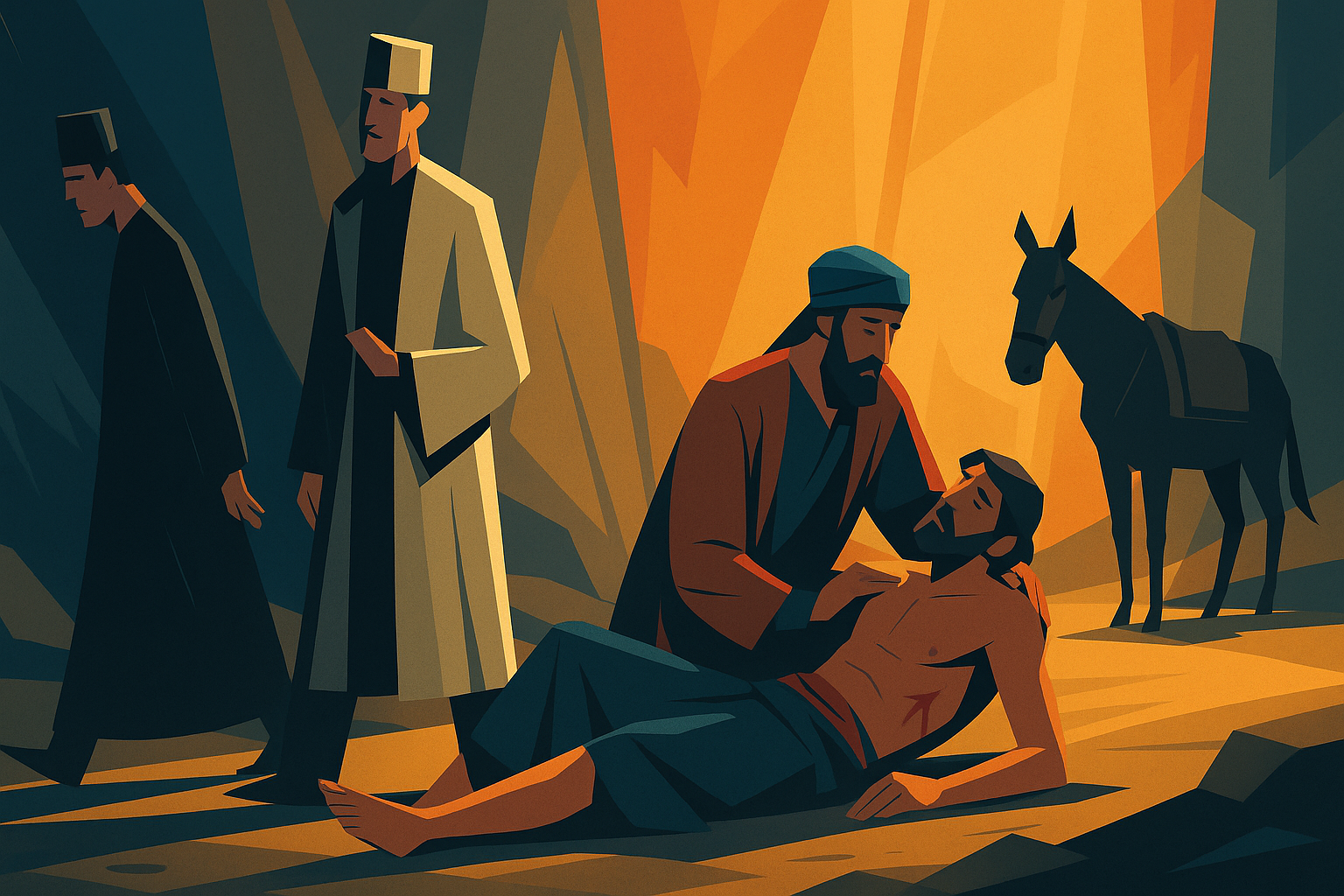The Parable of the Good Samaritan is one of the most familiar stories Jesus ever told. But beneath the surface, it is more than a call to be kind. It is a challenge to confront our excuses, surrender our bitterness, and embody a costly kind of mercy.
A religious expert asked Jesus, “What must I do to inherit eternal life?” Jesus pointed him back to the Shema: Love God with all your heart, and love your neighbor as yourself. But the man pressed further: “Who is my neighbor?” The story that follows exposes how real faith is measured not in piety or status, but in mercy.
On the road lies a man, beaten and half-dead. A priest passes by. A Levite passes by. Both saw him, and both walked away. They had reasons...good, religious reasons. But God is not impressed with reasons that leave people bleeding. Faith is proven not in what we say about love, but in whether we stop for the broken in front of us.
Sometimes what keeps us from stopping is not busyness, but bitterness. We have been wounded, betrayed, or overlooked. And over time, that wound hardens into resentment. Here’s the danger: when bitterness takes root, compassion dries up. A hard heart can quote Scripture, serve in church, and still look holy. But it will always walk past the wounded.
The Samaritan, hated and despised by Jews, was the one who stopped. He saw the man’s suffering and felt it in his gut. True compassion is not a polite feeling; it is a deep movement of the heart that compels action. The priest and Levite had holiness by appearance. The Samaritan had holiness by action. Holiness without compassion is not holiness...it is hypocrisy.
The Samaritan poured oil and wine onto the man’s wounds. Oil brought comfort and healing. Wine stung as it cleansed. Both were used in Israel’s worship...offered to God in the temple. But here, worship spilled out of the temple and onto the road. The Samaritan made the broken body of an enemy the altar of his sacrifice.
The Samaritan gave his own seat, placed the man on his animal, and walked. He paid two days’ wages and promised more. Mercy is never cheap. It costs time, resources, reputation, and comfort. But this is the very heart of the Gospel. Jesus carried what was not His. He bore our sin, our shame, our stripes, our cross. The Samaritan foreshadows Christ, who gave everything so we could be healed.
Jesus ends with one command: “Go and do likewise.” The Jericho road is still in front of us. There are people beaten by sin, stripped by shame, and left half-dead by this world. On the day of judgment, Jesus will not ask how many sermons we preached, but how many wounds we touched. He will not ask how many arguments we won, but how many strangers we welcomed. The question is not, “Who is my neighbor?” The question is, “Will I stop for the least, the last, and even the ones who hate me?”
Are you loving the people who despise you? The ones who wound you? The ones who vote differently than you? The ones who mock your faith? Because mercy is not proven by how we treat our friends, but by how we treat our enemies.
Will you be like the priest and Levite, who thought they were too holy and too good to love those different from them? Or will you be like the Samaritan, who showed costly compassion on the road?



.jpg)


.svg)
